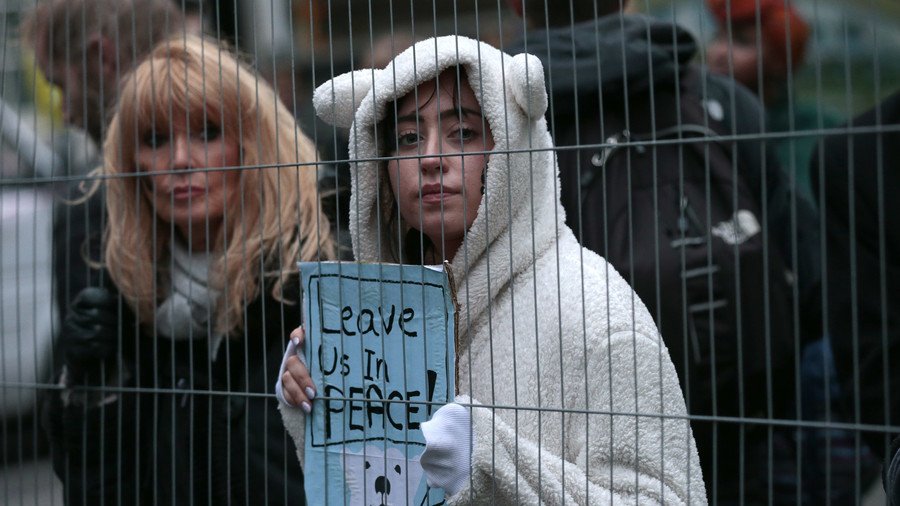End of world? British scientists challenge UN global warming predictions

Climate change predictions making alarming claims on Earth’s future have been challenged by a new study. Suggestions the planet’s surface will warm by 5° Celsius by 2100 are not realistic, according to a team of scientists.
Frightening climate change predictions by the UN would be void if the group from the University of Exeter is correct. Their probe into greenhouse gases pushing up the planet’s temperatures found possible end-of-century outcomes to be only half the range found by others.
“Our study all but rules out very low and very high climate sensitivities,” said lead author Peter Cox.
Despite the findings, the report, published in the journal ‘Nature’ made clear that humans’ actions on climate change will determine the planet’s future. The world must cut methane emissions, CO2 levels and drastically improve energy efficiency.
Researchers and scientists have laid out their predictions – some of which end in Earth’s tragic, fiery end. But the truth is, it is not truly known what will happen. The question is: if the amount of CO2 in the atmosphere is doubled, how much will that heat up Earth’s surface?
For decades scientists have pored over this “known unknown” called equilibrium climate sensitivity. Over the last 20 years, the UN’s Intergovernmental Panel on Climate Change has predicted this to be in the temperature range of 1.5°C to 4.5°C (2.7 to 8.1° Fahrenheit).
But Cox et al disagree. They say it will be 2.2°C to 3.4°C, with a best estimate of 2.8°C. If correct, the end of the world may be further away than suggested.
“These scientists have produced a more accurate estimate of how the planet will respond to increasing CO2 levels,” said Piers Forster, director of the Priestley International Centre for Climate at the University of Leeds.
Forester however said this does not mean we can abandon targets, like those set out in the Paris Accord on climate change. “We will still see significant warming and impacts this century if we don’t increase our ambition to reduce CO2 emissions,” said Forster.
Although this latest study says doomsday is further away, even slight changes will have consequences. Already the world as we know it is changing with storm surges, melting polar ice caps and deadly droughts. A 3.5°C world, scientists say, could pull at the fabric of civilization.
Since industrialization in the early 19th century, CO2 concentrations in the atmosphere have increased by nearly half, from 280 parts per million to 407 parts per million.
By analyzing the responsiveness of short-term changes in temperature to “nudges and bumps” in the climate system, Cox and his team predicted against the devastating increases of 4°C or more by 2100, they warned changes can happen without warning, brought on my Mother Nature.
Rapidly-melting ice sheets or rapid shifts in climate can be brought on by the planet itself.
“There is indeed evidence that the climate system can undergo abrupt changes or ‘tipping points’,” Cox said.
Think your friends would be interested? Share this story!
















